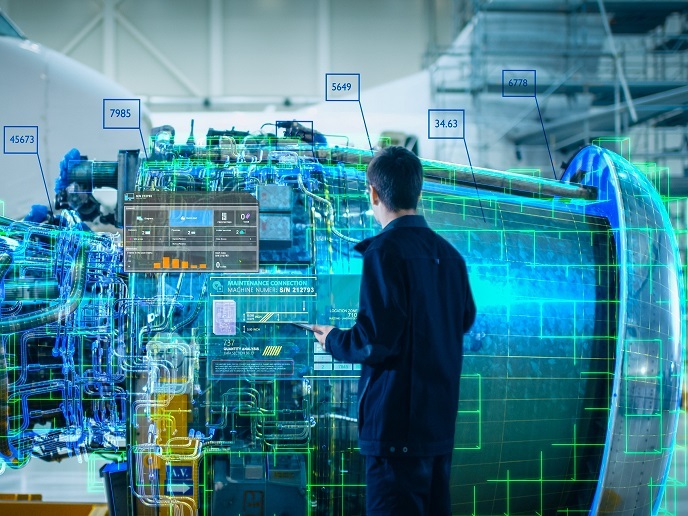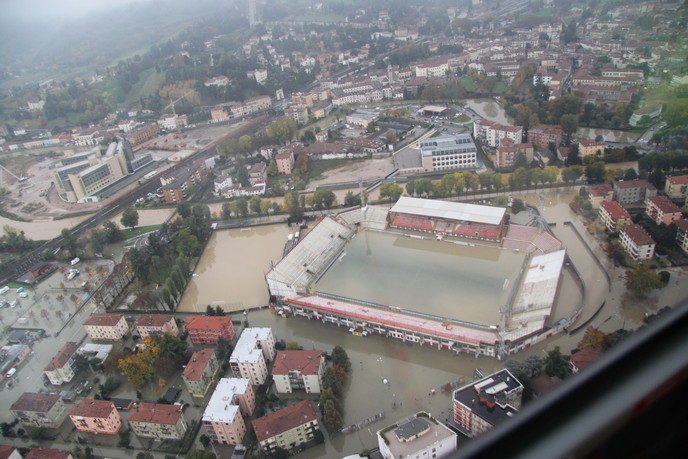How AI can help us tackle future exascale workloads
Europe is developing state-of-the-art supercomputers that provide researchers with unparalleled computing power to support scientific discoveries. Yet, complex simulations such as weather forecasts and aeronautical designs also create massive amounts of information that can be hard to analyse using traditional methods. The ACROSS project uses the artificial intelligence (AI) models to enhance existing high-performance computing (HPC) tools. AI could revolutionise HPC software tools in various technological domains such as speeding up the design process for critical aircraft components, enhancing weather forecasting accuracy, and advancing carbon capture and storage simulations to support a cleaner energy future. Alberto Scionti, a senior researcher at the LINKS Foundation in Italy and ACROSS dissemination manager, explains: “AI models have progressed so far that they are now able to capture the complexity of our world. This represented an indisputable opportunity to enhance HPC software tools and thus accelerate the ability of researchers to explore and discover more.” The ACROSS consortium, comprising 17 project partners from Europe, set out to design and develop a convergent platform integrating HPC, big data and AI. The ultimate objective was to create a modular, flexible software stack capable of handling complex workflows on modern supercomputers, combining traditional simulations with AI models and big data processing. As a result, it will be easier for users to describe their workflows, simplify how they want them to run and make sure that data and tasks flow smoothly even when using cloud resources.
Enhanced scientific progress
ACROSS has enabled researchers to harness supercomputer power more effectively. The project has developed new tools that have allowed for deeper analysis and more complex simulations, accelerating the pace of discovery. In the field of aeronautics, ACROSS reduced the time needed to run simulations and accelerated the design process for critical aircraft engine components. This will help to deliver more efficient and environmentally friendly aircraft. “The aeronautics pilot advanced the AI model to a new stage, targeting multiple parameters at a time, further increasing the speed of each single workflow run,” Scionti says. ACROSS’ achievements also include the optimisation of data processing for weather forecasting. This resulted in more accurate weather predictions, crucial for mitigating the impact of extreme weather events. Finally, the project also improved the simulations of carbon capture and storage, which are essential for reducing greenhouse gas emissions and mitigating climate change.
Advanced computational tech
ACROSS ensured predictable execution times for complex workflows, allowing researchers to experiment with AI models more efficiently. This deterministic workflow execution has enabled scientists to plan and conduct experiments with greater precision and reliability, and has led to improving the overall research process. Additionally, the exploration of human brain-inspired architectures by this project paved the way for future gains in computing efficiency. These neural networks promise significant improvements in processing speed and energy efficiency, making computers – and research – much faster. The ACROSS project was carried out with support from the European High Performance Computing Joint Undertaking (EuroHPC JU), an initiative set up to develop a world-class supercomputing ecosystem in Europe.
Keywords
ACROSS, EuroHPC JU, supercomputers, HPC, high-performance computing, AI, artificial intelligence, data, big data, aeronautics, climate, carbon, software stack, workflow







